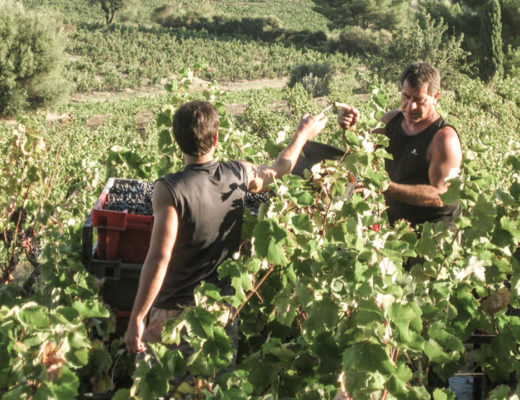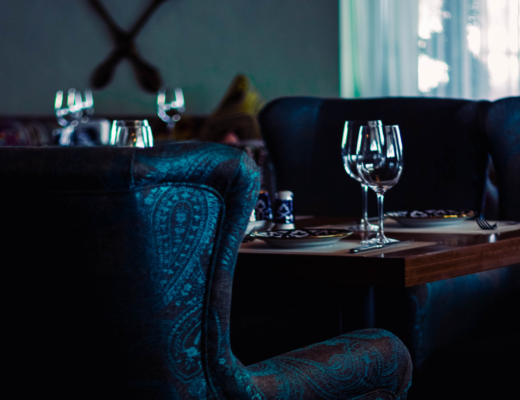“Perfect Provenance” is a phrase we take seriously, but keeping wine in pristine condition doesn’t stop once a bottle reaches your door—it has to continue until the bottle is opened and enjoyed.
As a result, we get asked a lot of questions about storing wine from the classic “Do I need a wine fridge?” to more obscure questions about how to store and age the world’s most precious beverage. This week, with the help of Arietta vintner and longtime wine auctioneer Fritz Hatton, winemaker Tor Kenward, and our Wine Team we’re answering your questions on what it takes to store and age wine perfectly at home, whether you’re strategizing on how to cellar for a century or a weekend.
1. Should I buy a wine fridge?
For the most part, yes, we recommend buying a wine fridge. Storing bottles in a temperature-controlled environment helps to avoid damage from temperature fluctuations, maintains the humidity so the cork doesn’t dry out, minimizes the harmful impacts of UV light, and reduces vibration, which can damage delicate aromatics. Regardless of whether you’re storing wine for the short term or long term, having a fridge will help minimize all these potential issues.
“And it’s like having a mini-cellar above ground,” says Wine Access Head of Wine Vanessa Conlin Master of Wine, but “it definitely isn’t required,” she maintains. When Conlin lived in New York City, her musician husband’s grand piano was a priority over a wine fridge. “I made do by storing my cellar-worthy bottles in the back of my closet as far away from the radiator and light as possible.” The main consideration is just to keep the wines as cool as possible without big temperature fluctuations, and away from light and vibration, whether that is in a fridge or in a more creative location.
2. What if I’m interested in storing wine long term as an investment?
For those among you who are actively preserving wine as an investment, or thinking about buying wine to sell later, we asked auctioneer Fritz Hatton, owner of Arietta Wines produced by Napa legend Andy Erickson, to divulge his knowledge of storing wine for value.
Hatton suggests maintaining bottles at a constant 55 degrees Fahrenheit, or even less. “50 degrees Fahrenheit really places a wine into hibernation,” he says, further offering his take on the best conditions: “No light, no vibration, 70-80% humidity, with minimized movement over the wine’s lifetime, and best to keep in the original packaging. The ideal provenance for resale is purchase on original release from the producer or official importer, with temperature-controlled delivery, placed immediately into temperature-controlled storage and not moved thereafter,” he says. Additionally, “keep all receipts for proof of purchase.”
3. Should I keep my red wines in the fridge?
Master Sommelier Sur Lucero, who worked the floor of Thomas Keller’s Michelin-3-Star The French Laundry has this advice for those of you who wonder about storing your red wine in the refrigerator: “It’s just a bad idea. Keeping your wine in a normal refrigerator, with its vibrations, temperature fluctuations, and blasts of light, can essentially put your wine into a variable state of bottle shock,” he says.
But suppose you like to drink your red wine cooler than room temperature? We love our reds right out of the cellar at around 55-57 degrees Fahrenheit. Depending on your fridge, 25-30 minutes is the right amount of time to achieve that perfect cellar temperature. If you forget it for an hour or more, best to let it sit out a bit because red that is too cold is closed off, tight, and devoid of aromas and flavors.
4. I keep my wines in a cabinet or on the counter, is that okay?
If you are keeping some bottles on a counter that you plan to consume in a few months to a year, there is generally nothing wrong with that. “I keep some wine on hand on my counter for easy access,” says VP of wine Robert Emery, “helping me to avoid touching the wines I plan to age long term.” The only caveat, says Emery, is not to store that wine on top of the fridge or in cabinets above (or near) the stove. “The heat generated from the refrigerator condenser or the heating elements will damage the wine.”
5. Does it matter if I store the bottle standing up?
If you store wine long-term standing up, and it’s not a screw top, the cork may dry out exposing the wine to oxygen. The warmer it is in your house, the faster it will mature, so if you live in a hot climate this may not be ideal. “Either having the wine on its side, slightly angled or just stored upside down is beneficial to keep the corks moist so they don’t dry,” suggests VP of wine Neil Mechanic.
6. What if I can’t finish the bottle? Can I save it? How long will it last?
International wine, sake, and spirits judge Eduardo Dingler does not have this problem. But his advice to those who do is to invest in a Coravin system, “if you like rescuing wine out of bottles in small amounts,” as he puts it. But depending on the style of wine “anywhere from 1-3 days,” is about how long the wine will last. “Remember oxygen can be a friend when decanting,” says Dingler, “or the worst enemy over time. Having run restaurant programs, I enjoyed the exercise of testing potential wines offered by-the-glass to check their endurance. Reds with sturdy tannins and complexity tend to withstand time and oxygen best.”
7. How do I know when to open a bottle? What’s the “right time”?
This is a hard one to answer, but our friend (and provocateur?) Tor Kenward of TOR, who produces some of the longest-lived bottles of top Napa Cabernet, says that the right time is a bit like… well, we’ll let him explain:
“Picking the right time to drink a bottle of wine is like sex in some ways, there are a lot of ways to approach this subject, but try and make it personal. Go searching for your own drinking window. Getting there is more than half the fun. I find the best time could be right now—or anytime afterward, but up to a point. Getting to know your ‘point’ is the secret. No two people have the same ‘point’ when a wine is best.”





